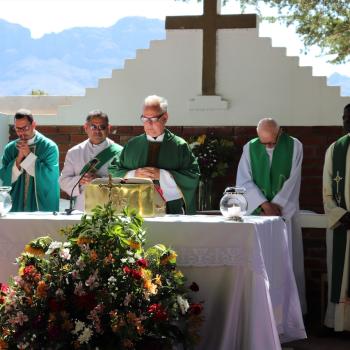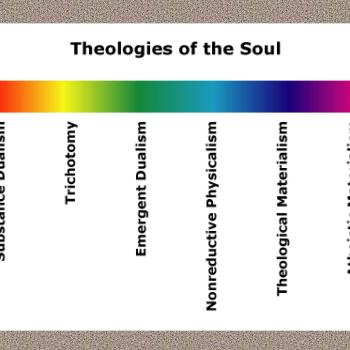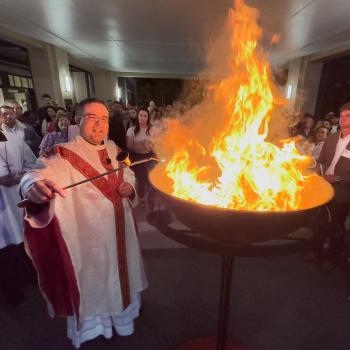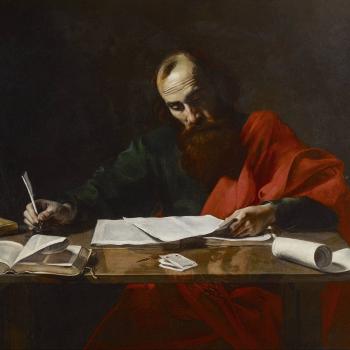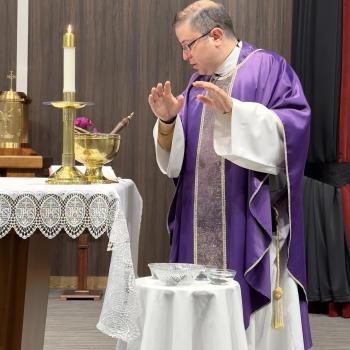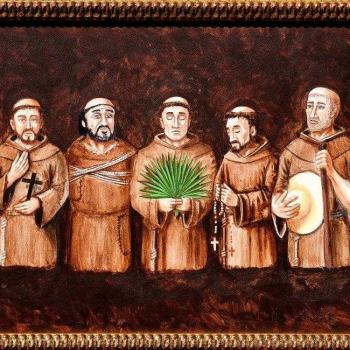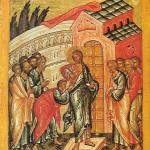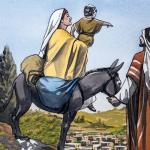Last week I met a priest who lost 1000 parishioners in one day in a massacre in 1982.
Last week I met a priest who was put in a cage while a lieutenant in front of him radioed the colonel to ask for orders to shoot him. Since the colonel was out to lunch the lieutenant reluctantly let the priest go, ordering him to stop again at the checkpoint on his return downstream (the priest visited his communities by boat).
Last week I met a religious brother who spent three and a half years in a refugee camp organizing people and giving them hope until he accompanied them back to their homeland.
Last week I met a priest who learned at least three Maya languages and worked to translate the New Testament into one of these unwritten languages, Jacotec. He humbly claims to be the first catholic priest ever to celebrate mass in a Maya language back in the 1960s.
These men had fellow priests and friends tortured and murdered. These men were threatened constantly yet they did not flee to the safety of their native country, the USA.
Hundreds of their catechists, church workers, church teachers and medics were murdered. In total, 200,000 civilians were executed in Guatemala between 1960 and 1996 (another 50,000 disappeared), most of them descendants of the Mayas, most of them Catholic, and almost all of them killed by their own government. One and a half million people were displaced and 676 massacres occurred.
How did these priests persevere in the midst of such difficulty?
They persevered because they longed to participate in the mission of Jesus Christ, a mission we just heard proclaimed in today´s Gospel reading: to bring glad tidings to the poor, to proclaim liberty to captives, recovery of sight to the blind, to let the oppressed go free and to proclaim a year acceptable to the Lord.
These men believed in the power of the Prince of Peace in a country plagued by war. They believed in the power of Christ to liberate captives and the oppressed. They believed in Christ’s ability to bring glad tidings to the poor and to bring about a society acceptable to the Lord.
They taught their parishioners how to read and write.
They taught their parishioners how to farm better.
They taught their parishioners how to keep healthy.
And above all and most importantly, they showed their parishioners the love and compassion of Christ in the midst of their pain and suffering.
These brave men challenged sinful structures of society that though lawful, did not respect the dignity of the human person, in particular the poor and oppressed.
Certain parallels may be drawn to our present struggle in our country where millions have been massacred legally and under government supervision and approval for the past forty years. We need prophetic voices to rise up above the politics and political correctness to call society to conversion, repentance and reconciliation.
Cardinal Bernadin, previous archbishop of Chicago, asked that if the value of human life is not upheld, how can any other human value or right be upheld? He said, “the more one reverences human life at all stages, the more one becomes committed to preserving the life of the unborn, for this is human life at its earliest and most vulnerable stage.”
We need men and women who recognize their unique role in the body of Christ as the church continues the make present today the mission of Christ on earth. We need men and women who will stand up for the dignity of human life.
Our desire as Christians must be to stand in solidarity with the whole church to bring glad tidings to the poor, to proclaim liberty to captives, recovery of sight to the blind, to let the oppressed go free and to proclaim a year acceptable to the Lord.
Archbishop Romero, the slain archbishop of San Salvador, once said it was difficult to be a “man of the magisterium” because it is not easy to be always consistent in our proclamation of the Gospel. He firmly believed he had to accept and live out the wholeness of the teachings of the Church and her bishops.
Romero would challenge us today to be men and women of the Church, to be faithful and loyal to the teachings of Christ and his church, be it by showing compassion and mercy towards the poor, condemning abortion, calling for immigration reform and, as the bishops very recently stated, call for gun control in order to build a culture of life and to confront the culture of violence.
This challenge is an invitation for us to live out the Paschal mystery of the death and resurrection of Christ into which we have all been baptized. To die to ourselves so that Christ may shine brightly through us.
Though these four men serving in Guatemala persevered by the grace of God and survived, they have also given their lives by dying to themselves so that others may have life. That is our calling, may God give us the grace to desire it and live it.




